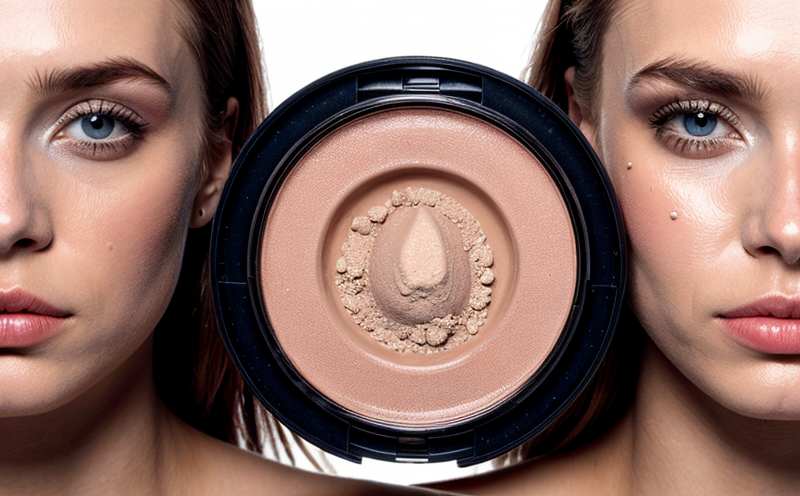Nickel Sensitization Testing in Cosmetics
Nickel sensitization testing is a critical component of ensuring product safety and compliance within the cosmetics industry. Nickel, a common metal found in various cosmetic products such as jewelry, eyeshadow, lipsticks, and hair products, can cause allergic reactions leading to contact dermatitis in sensitive individuals.
According to international standards like ISO 17638, nickel sensitization testing assesses the potential for nickel ions to penetrate a subject's skin when applied topically. This test is particularly important as it helps manufacturers ensure their products do not contain excessive amounts of nickel that could cause adverse reactions.
The testing process involves exposing subjects' skin to small quantities of nickel salts under controlled conditions and monitoring for any signs of sensitization over a specific period. The results help in determining the maximum concentration of nickel allowed in cosmetic products without causing allergic responses, thus ensuring compliance with regulatory requirements such as those set by the European Union's Cosmetic Regulation (EC 1223/2009).
Manufacturers and quality managers rely on this testing to maintain a balance between product efficacy and safety. By conducting these tests early in the development process, companies can identify potential issues and make necessary adjustments before launching their products into the market.
In addition to regulatory compliance, nickel sensitization testing also plays a vital role in protecting consumer health and safety. It allows for the identification of sensitive populations who may require alternative product formulations or usage instructions. This approach not only enhances public trust but also supports the ethical standards expected by consumers today.
Furthermore, nickel sensitization testing contributes to reducing environmental impact by minimizing unnecessary rework during production cycles. By identifying problematic batches early in the process, companies can avoid costly recalls and improve overall supply chain efficiency.
Why It Matters
The importance of nickel sensitization testing cannot be overstated given its direct impact on both consumer safety and brand reputation. Regulatory bodies worldwide have implemented strict regulations governing the amount of nickel permissible in cosmetic products due to its well-documented allergenic properties.
For instance, under EU regulations, cosmetics must not contain more than 0.5 micrograms per gram (µg/g) of total nickel content, including both soluble and insoluble forms. Failure to meet these standards can result in severe penalties, including product recalls, financial losses, and damage to brand image.
From a consumer perspective, knowing that their chosen cosmetic products have undergone rigorous testing reassures them about the quality and safety of those items. Such transparency fosters long-term customer loyalty and enhances trust between brands and consumers.
In summary, nickel sensitization testing is not just an obligatory step; it represents a proactive measure towards safeguarding public health while maintaining high standards of manufacturing excellence. It ensures that cosmetic products remain safe for all users, regardless of individual sensitivities or allergies.
International Acceptance and Recognition
- ISO/IEC 17638: This international standard specifies the procedure for determining whether nickel ions are capable of penetrating human skin through topical application.
- ASTM D4049-15: Provides guidance on the preparation and evaluation of test specimens used in nickel sensitization tests.
- EU Cosmetic Regulation (EC 1223/2009): Mandates that cosmetic products do not contain more than 0.5 µg/g of total nickel content.
These standards and regulations are widely accepted across various countries, reflecting a global consensus on the necessity of nickel sensitization testing in cosmetics. Adherence to these guidelines ensures consistency in product safety assessments globally.
Environmental and Sustainability Contributions
Nickel sensitization testing contributes significantly to environmental sustainability by promoting responsible sourcing practices and reducing waste associated with substandard products. By identifying problematic batches early, companies can prevent the release of potentially harmful substances into the environment.
The testing process itself also promotes sustainable business operations by optimizing resource utilization and minimizing unnecessary production runs. This leads to lower energy consumption, reduced emissions, and overall decreased environmental footprint throughout the supply chain.
Moreover, nickel sensitization testing supports ethical manufacturing principles that prioritize human health above all else. By ensuring that cosmetic products are free from harmful substances like nickel, manufacturers demonstrate their commitment to social responsibility and environmental stewardship.





